Older people
Housing information and advice for older people - maintaining independence
Staying independent in your current home
Where we live is a very important issue for all of us. However, you may be having difficulty living at home because:
- your home is in need of repair - for example, you have no central heating or your roof is leaking;
- you need help (support) understanding letters and sorting things out; and
- you find every-day jobs difficult, for example: cleaning, shopping or bathing; or you cannot afford to pay your bills.
If any of the above apply to you, there are two main housing options open to you:
- staying where you are and receiving support or making improvements or changes (adaptations) to your home; or
- moving to a more suitable home for more help and support with everyday jobs or to be closer to shops and services.
Your choice will depend on your personal situation and you should look into each option carefully before making any decisions - there are people who can help you.
- If you are considering moving because that may better suit you, please see information about moving home.
- If you want to stay where you are, please read the information on this page.
- If you are renting, you could ask your landlord about improving or adapting your property to make life easier.
- If you own your own home, it may also be possible to improve or adapt it. Boston Borough Council can advise you about:
- energy efficiency advice to help make your home warmer and your fuel bills cheaper,
- disabled adaptations, so that you can move around your property safely - for example: bath/shower, toilet, stair-lift, and kitchen adaptations. For further information please see the Disabled Facilities Grant page
- small works loan scheme to deal with serious repair problems. For example: rewiring, roof repairs and serious damp.
Thinking of moving to stay independent?
There are many reasons why people move, but it is important that you think carefully about what your needs, are both now and for the future, including:
- the type, size and layout of the property - for example: house, bungalow or flat, the number of bedrooms;
- the cost of bills - for example: electric, gas, water, repair and maintenance costs (including support costs and other services); and
- the location - for example: access to shops, services, transport, and location of friends or relatives.
If you are renting, you could ask your landlord about a transfer to a property more suitable for your needs.
These are some of the choices available if you are thinking of moving:
Alternative Owner-Occupied or Private Rented Accommodation (often known as retirement housing)
Flats and bungalows designed for older people may be available to buy or rent privately. These are advertised in local newspapers and estate agents. They usually have an emergency alarm system, which may be a push-button pendant, pull cords or an emergency telephone, or a combination of these. The services offered depend on where you live.
You should fully consider any conditions attached to purchasing the property such as restrictions if you wish to sell at a later date.
Social and Affordable Housing (often known as Council or Housing Association housing)
If you would like more information on applying for Social and Affordable Housing please see the Finding a Home pages.
Your housing needs will be assessed to decide what type of property you qualify for. Your support needs will also be assessed to work out what help you need. Adult Social Care will assess any extra support needs you may have. You may have to pay for this support.
Sheltered Housing
Sheltered housing is usually a group of self-contained flats or bungalows with 24-hour support from a phone system, pendant, or pull-cord, or a combination of these. It is available for people who are mostly independent, although if you need extra care and support with everyday jobs, you should contact Adult Social Care for a Social Care Assessment.
To apply for sheltered housing, you will need to fill in a Housing Register application form which can be found on the Finding a Home pages.
Every sheltered housing unit:
- encourages you to be as independent as possible,
- has its own front door and
- has an emergency call system, such as a pendant alarm.
Most groups of dwellings have a visiting Scheme Manager and communal areas where you can meet your neighbours and friends. Organised activities, visiting services and support with everyday living may be available depending on your circumstances, although you may have to pay for these.
Care Homes providing personal and nursing care
You can move to a care home when you can no longer live at home. Care homes are provided by Lincolnshire County Council, voluntary/charitable organisations or privately owned. All registered care homes are strictly regulated by the Commission of Social Care Inspection. Adult Social Care can give you a list of all care homes in the area and advice on possible help towards the costs.
Useful telephone numbers:
- Lincolnshire County Council Adult Social Care: 01522 782 155
- Age UK Boston & South Holland Community Room: 01205 364 161
Wellbeing Service
- The Wellbeing Service aims to help independent living at home with personalised support, minor adaptations and assistive technology.




